#Les Miserables 1934
Text
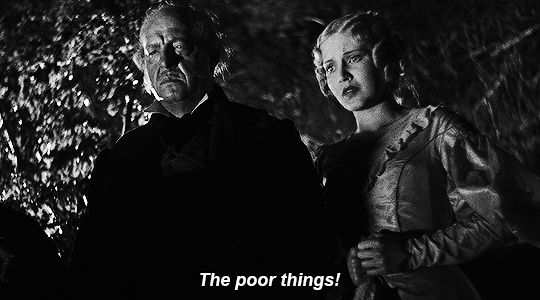

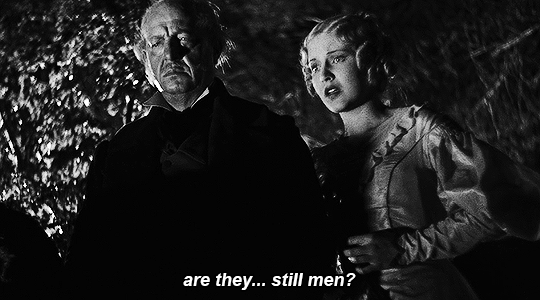


Harry Baur as Jean Valjean & Josseline Gaël as Cosette
LES MISÉRABLES (1934)
dir. Raymond Bernard

#les miserables#les miserables 1934#france#1930s#by kraina#filmedit#worldcinemaedit#perioddramaedit#weloveperioddrama#onlyperioddramas#filmgifs#classicfilmsource#userraffa#userteri#userrobin#underbetelgeuse#userdanahscott#tuserhan#userbru#elinordash
394 notes
·
View notes
Text
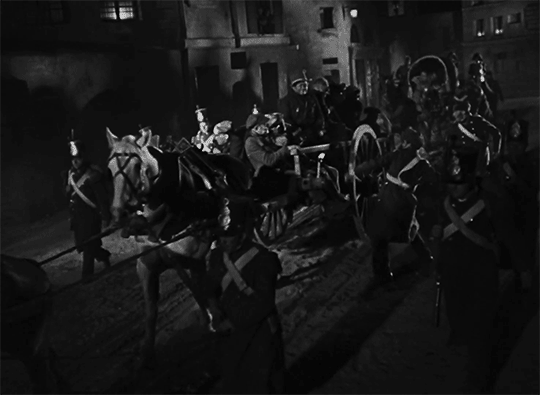
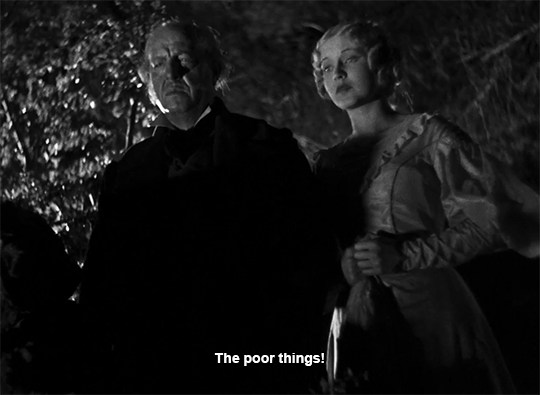
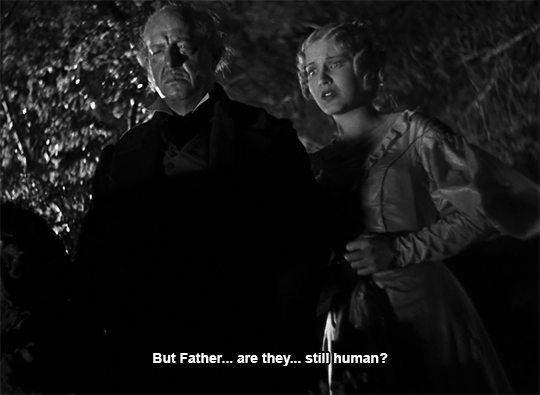

LES MIS LETTERS IN ADAPTATION - The Chain-Gang, LM 4.3.8 (Les Miserables 1934)
At that moment, the cudgelling, multiplied by a hundred hands, became zealous, blows with the flat of the sword were mingled with it, it was a perfect storm of whips and clubs; the convicts bent before it, a hideous obedience was evoked by the torture, and all held their peace, darting glances like chained wolves.
Cosette trembled in every limb; she resumed:—
“Father, are they still men?”
“Sometimes,” answered the unhappy man.
#Les Mis#Les Miserables#Les Mis Letters#Les Mis Letters in Adaptation#Les Mis 1934#Les Miserables 1934#Jean Valjean#Valjean#Cosette#Cosette Fauchelevent#LM 4.3.8#lesmisedit#lesmiserablesedit#pureanonedits#lesmiserables1934edit
89 notes
·
View notes
Photo



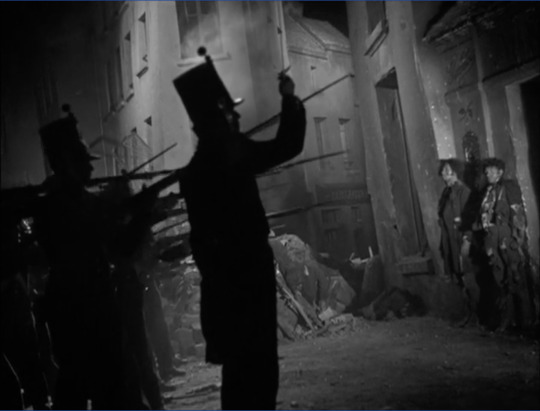

Enjolras and Grantaire from Les Misérables (1934) dir. Raymond Bernard, starring Robert Vidalin as Enjolras and Paul Azaïs as Grantaire.
#les mis#enjolras#grantaire#les mis 1934#les miserables#les miserables 1934#victor hugo#film#black and white#movies
180 notes
·
View notes
Photo

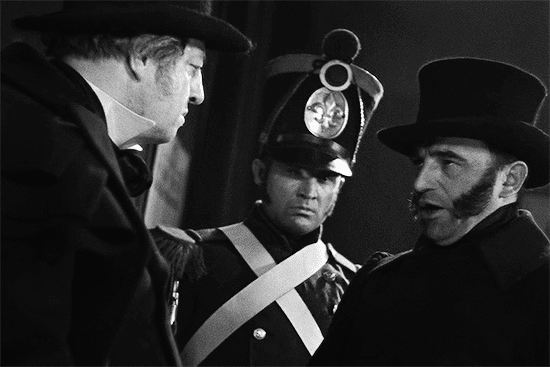
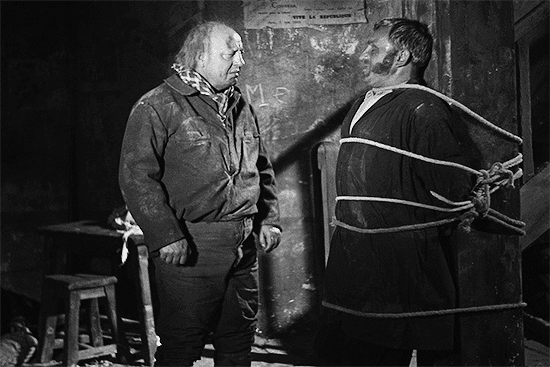

HARRY BAUR & CHARLES VANEL in les misérables (1934)
#charles vanel#harry baur#valvert#les miserables 1934#lesmisedit#les miserables#gilles gifs#they might be in my top 3 valjean/javert combos#i love them#and vanel javert is... [clutches chest]
62 notes
·
View notes
Text

i'm pissing myself at the tags jellyfin automatically generated for my files of the 1934 version of les miserables
2 notes
·
View notes
Text

But that's just your opinion. I want it to be longer.
609 notes
·
View notes
Text

Make a wish, Cosette!
The nuns of Petit-Picpus frown upon such excess, but look at her, she's a twig-
It's nowhere near her birthday (or at least pick-up day), but my doodles come strictly out of season :)
#les miserables#les mis#cosette fauchelevent#in the 1934 film cosette gets a cake too!#convent school cosette#birthday#I like to imagine her as a scrawny excitable little thing in her shapeless sack of a uniform#just prancing about and doing handstands and sticking raspberries on her fingers#give us happy cosette#give us silly cosette#my art
91 notes
·
View notes
Text
watched Samurai Rebellion last night. Kobayashi’s characters seem miles more alive than Kurosawa’s
#to whom it may concern: samurai movies can be more than cool costumes and a shriveling look from toshiro mifune#i'm gonna try to go through his catalog best i can considering homeboy made a lot of 3hr movies#jesus christ the human condition trilogy is longer than the 1934 les miserables
4 notes
·
View notes
Note
Hello! I'm having a hard time finding GOOD adaptations of Les Mis (apart from the musical of course) because so far I have only managed to run into the bad ones (BBC 2018, the Liam Neeson one, the whole nightmaris works). Anyway, I figured this would be a good place to ask for recs of adaptations that aren't just a complete butchering of the source material! (Oh and I HAVE seen Shoujo Cosette). Thank you :)
Ooh! I have some favorites!
Just good all around:
1925 , French(silent film! there's a fan copy going around with subtitles but honestly , it's a silent film; you'll be fine if you already know the story)
1934, French (ABSOLUTELY not 1935) - this one's a Criterion release so it's not too hard to find it subbed!
1964 Italian miniseries -ten parts, fantastic all the way through, actually paces itself well enough to spend real time on the politics in the second half!
Good in Certain Specific Ways
1972, French: lots of focus on the Amis and Gavroche and Paris! Not so much on Valjean, Cosette, and Fantine. But what it does do well is SO good even if they keep stealing Bahorel's lines for other characters, do NOT talk to me about how he's a Minor Character when apparently he has enough scenes to feed an army , and not something easy to find in adaptations, that I think it's worth watching.
1967 BBC, English: a tv miniseries that is half about the best English adaptation I've ever seen, and half ...very not that. The original writer genuinely died halfway through the making of this and whoo boy you can tell, but those first few episodes are really good and in particular have some of the best work with Javert's character that I've ever seen.
1995, French: set in the first few decades of the 20th century, not a direct adaptation but rather a study of how the themes in Les Miserables repeat across multiple eras and lives. One of the most intense and painful Les Mis films I've seen but also one that really digs into its meaning , and the importance of how a story can affect people. VERY worth seeking out.
Not a Filmed Adaptation But Genuinely One of the Best:
The manga by Takahiro Arai, available in Japanese, French, and English ! the last of the 4 volume English omnibus editions is coming out this winter. Arai is a clear fan of the novel and there's so much care put into this, it's a great adaptation and a great manga in its own right.
As to where to find all these--well the English manga omnibus is being released by Seven Seas, but the others, it's going to kind of depend? There's so many Issues with various videos being available only in some locations, but I bet if you ask other fans here who are watching or have watched versions you're interested in, they can help you!
I hope you find some new favorites here!:D
#...don't ask me though because I'm currently transferring my libraries between computers ><#or I'd have offered
36 notes
·
View notes
Text
The Best Books
The list is made from an academic point of view. More books may be added or any book may be taken out of the list at anytime.
Books that enlightened, outraged, provoked and comforted us
Pride and Prejudice by Jane Austen, 1813
Emma by Jane Austen, 1815
The Count of Monte Cristo by Alexandre Dumas, 1844
Wuthering Heights by Emily Bronte, 1847
Vanity Fair by William Makepeace Thackeray, 1848
Great Expectations by Charles Dickens, 1860
Les Miserables by Victor Hugo, 1862
Crime and Punishment by Fyodor Dostoyevsky, 1866
Little Women by Louisa May Alcott, 1868
Middlemarch: A Study of Provincial Life by George Eliot, 1874
Anna Karenina by Leo Tolstoy, 1877
Adventures of Huckleberry Finn by Mark Twain, 1884
Germinal by Émile Zola, 1885
The Short Stories of Anton Chekhov by Anton Chekhov, 1888
The Ambassadors by Henry James, 1903
In Search of Lost Time by Marcel Proust, 1913
Dubliners by James Joyce, 1914
The Mysterious Stranger by Mark Twain, 1916
Ulysses by James Joyce, 1922
The Magic Mountain by Thomas Mann, 1924
An American Tragedy by Theodore Dreiser, 1925
The Great Gatsby by F. Scott Fitzgerald, 1925
To the Lighthouse by Virginia Woolf, 1927
Coming of Age in Samoa by Margaret Mead, 1928
All Quiet on the Western Front by Erich Remarque, 1929
The Sound and the Fury by William Faulkner, 1929
The Autobiography of Alice B. Toklas by Gertrude Stein, 1933
Tender is the Night by F. Scott Fitzgerald, 1934
Gone With the Wind by Margaret Mitchell, 1936
Death on the Nile by Agatha Christie, 1937
Out of Africa by Isak Dinesen, 1937
Their Eyes Were Watching God by Zora Neale Hurston, 1937
The Grapes of Wrath by John Steinbeck, 1939
Romola by George Eliot, 1940
Black Boy by Richard Wright, 1945
Hiroshima by John Hersey, 1946
Robinson Crusoe by Daniel Defoe, 1946
A Streetcar Named Desire by Tennessee Williams, 1947
Under the Volcano by Malcolm Lowry, 1947
The Sheltering Sky by Paul Bowles, 1949
The Catcher in the Rye by J. D. Salinger, 1951
Invisible Man by Ralph Ellison, 1952
Lord of the Flies by William Golding, 1954
The Sun Also Rises by Ernest Hemingway, 1954
Lolita by Vladimir Nabokov, 1955
Notes of a Native Son by James Baldwin, 1955
Our Man in Havana by Graham Greene, 1958
The Civil War by Shelby Foote, 1958
Raise High the Roof Beam, Carpenters and Seymour: An Introduction by JD Salinger, 1959
Rabbit, Run by John Updike, 1960
Where Angels Fear to Tread by E. M. Forster, 1960
The Death and Life of Great American Cities by Jane Jacobs, 1961
The Making of the President by Theodore H. White, 1961
Pale Fire by Vladimir Nabokov, 1962
The Spy Who Came in from the Cold by John le Carre, 1963
A Moveable Feast by Ernest Hemingway, 1964
The Autobiography of Malcolm X by Malcolm X, 1965
Manchild in the Promised Land by Claude Brown, 1965
Against Interpretation, and Other Essays by Susan Sontag, 1966
In Cold Blood by Truman Capote, 1966
One Hundred Years of Solitude by Gabriel Garcia Marquez, 1967
The American Cinema by Andrew Sarris, 1968
The Double Helix by James Watson, 1968
The Electric Kool_Aid Acid Test by Tom Wolfe, 1968
I Know Why the Caged Bird Sings by Maya Angelou, 1969
Slaughterhouse-Five by Kurt Vonnegut, 1969
The French Lieutenant’s Woman by John Fowles, 1969
Are You There God? It’s Me Margaret by Judy Blume, 1970
Ball Four by Jim Boutton, 1970
The Complete Stories of Flannery O’Connor, 1971
The Best and the Brightest by David Halberstam, 1972
The Politics of Nonviolent Action by Gene Sharp, 1973
All The President’s Men by Bob Woodwad and Carl Bernstein, 1974
The Power Broker by Robert A. Caro, 1974
Ragtime by E. L. Doctorow, 1975
Sociobiology by Edward O. Wilson, 1975
The Executioner’s Song by Norman Mailer, 1979
The Clan of the Cave Bear by Jean M. Auel, 1980
Follow The River by James Alexander Thom, 1981
Psychoanalysis: The Impossible Profession by Janet Malcolm, 1981
The Fractal Geometry of Nature by Benoit Mandelbrot, 1982
The Last Lion: Winston Spencer Churchill by William Manchester, 1983
The Unbearable Lightness of Being by Milan Kundera, 1984
The Center of the Cyclone by John Lilly, 1985
Great and Desperate Cures by Elliott Valenstein, 1986
Maus by Art Spiegelman, 1986
The Making of the Atomic Bomb by Richard Rhodes, 1986
And the Band Played On by Randy Shilts, 1987
Beloved by Toni Morrison, 1987
The Closing of the American Mind by Allan Bloom, 1987
A Brief History of Time by Stephen Hawking, 1988
Battle Cry of Freedom: The Civil War Era by James M. McPerson, 1988
The Society of Mind by Marvin Minsky, 1988
Summer’s Lease by John Mortimer, 1989
A Prayer For Owen Meany by John Irving, 1989
A Soldier of the Great War by Mark Helprin, 1991
Mortal Questions by Thomas Nagel, 1991
PIHKAL by Alexander and Ann Shulgin, 1991
Lonely Hearts of the Cosmos by Dennis Overbye, 1991
The Six Wives of Henry VIII by Alison Weir, 1991
Band of Brothers by Stephen E. Ambrose, 1992
The Talented Mr Ripley by Patricia Highsmith, 1992
The English Patient by Michael Ondaatje, 1993
Dreams from My Father by Barack Obama, 1995
Montana Sky by Nora Roberts, 1996
Tuesdays with Morrie: An Old Man, a Young Man, and Life’s Greatest Lesson by Mitch Albom, 1997
War Before Civilization by Lawrence Keeley, 1997
How the Mind Works by Steven Pinker, 1997
A Walk in the Woods by Bill Bryson, 1998
In the Name of Eugenics by Daniel Kevles, 1998
Who Moved My Cheese? by Spencer Johnson, 1998
Interpreter of Maladies by Jhumpa Lahiri, 1999
A Heartbreaking Work of Staggering Genius by Dave Eggers, 2000
Nonzero by Robert Wright, 2000
Chocolat by Joanne Harris, 2000
The Secret Life of Bees by Sue Monk Kidd, 2001
The Illusion of Conscious Will by Daniel Wegner, 2002
Atonement by Ian McEwan, 2003
The Kite Runner by Khaled Hosseini, 2003
The Known World by Edward P. Jones, 2003
Gilead by Marilynne Robinson, 2004
My Sister’s Keeper by Jodi Picoult, 2004
Portofino: A Novel (Calvin Becker Trilogy) by Frank Schaeffer, 2004
Never Let Me Go by Kazuo Ishiguro, 2005
The Book Thief by Marcus Zusak, 2005
The Girl With a Dragon Tattoo by Stieg Larsson, 2008
Lords of Finance: The Bankers Who Broke The World, 2009
Unbroken: A World War II Story of Survival, Resilience and Redemption by Laura Hillenbrand, 2010
Washington: A Life by Ron Chernow, 2010
Orientation: And Other Stories by Daniel Orozco, 2011
Books that inspired debate, activism, dissent, war and revolution
The Torah
Bhagavad Gita
I Ching (Classic of Changes) by Fu Xi
Tao Te Ching by Lao Tzu
The Summa Theologica of St. Thomas Aquinas, 1266
The Divine Comedy by Dante Alighieri, 1321
Don Quixote by Miguel de Cervantes, 1605
Ethics by Baruch de Spinoza, 1677
Pilgrim’s Progress by John Bunyan, 1678
Candide by Voltaire, 1759
Confessions by Jean-Jacques Rousseau, 1781
Critique of Pure Reason by Immanuel Kant, 1781
Democracy in America by Alexis de Tocqueville, 1835
A Christmas Carol by Charles Dickens, 1843
Moby-Dick by Herman Melville, 1851
Uncle Tom’s Cabin by Harriet Beecher Stowe, 1852
Walden (Life in the Woods) by Henry David Thoreau, 1854
Madame Bovary by Gustave Flaubert, 1857
Experiments on Plant Hybridization by Gregor Mendel, 1866
War and Peace by Leo Tolstoy, 1869
Thus Spoke Zarathustra by Friedrich Nietzsche, 1883
Arabian Nights by Andrew Lang, 1898
The Ragged Trousered Philanthropists by Robert Tressell, 1914
Relativity: The Special and General Theory by Albert Einstein, 1916
Psychological Types by Carl Jung, 1921
Mein Kampf (My Struggle or My Battle) by Adolf Hitler, 1925
Der Process (The Trial) by Franz Kafka, 1925
The Tibetan Book of the Dead by Karma-glin-pa (Karma Lingpa), 1927
Brave New World by Aldous Huxley, 1932
The General Theory of Employment Interest and Money by John Maynard Keynes, 1936
The Big Book by Alcoholics Anonymous, 1939
Being and Nothingness by Jean-Paul Sartre, 1943
The Little Prince by Antoine de Saint-Exupery, 1943
The Road To Serfdom by Friedrich von Hayek, 1944
Animal Farm by George Orwell, 1945
Survival in Auschwitz: The Nazi Assault on Humanity by Primo Levi, 1947
The Diary of a Young Girl by Anne Frank, 1947
Nineteen Eighty-Four by George Orwell, 1949
The Second Sex by Simone de Beauvoir, 1949
The Origins of Totalitarianism by Hannah Arendt, 1951
Things Fall Apart by Chinua Achebe, 1958
To Kill a Mockingbird by Harper Lee, 1960
Guerilla Warfare by Che Guevarra, 1961
Capitalism and Freedom by Milton Friedman, 1962
Silent Spring by Rachel Carson, 1962
The Structure of Scientific Revolutions by Thomas Kuhn, 1962
Quotations from Chairman Mao Tse-Tung (The Little Red Book) by Mao Zedong, 1964
Unsafe at Any Speed by Ralph Nader, 1965
Catch 22 by Joseph Heller, 1969
The Female Eunuch by Germaine Greer, 1970
Zen and the Art of Motorcycle Maintenance by Robert M. Pirsig, 1974
The Normal Heart by Larry Kramer, 1987
The Alchemist by Paulo Coelho, 1988
The Vagina Monologues by Eve Ensler, 1995
Harry Potter and the Philosopher’s Stone by J. K. Rowling, 1997
Books that shook civilization, changed the world
The Holy Bible
The Qur’an
The Analects of Confucius
The Iliad and The Odyssey by Homer
The Histories by Herodotus, 440 BC
The Republic by Plato, 380 BC
The Kama Sutra (Aphorisms on Love) by Vatsyayana
On the Shortness of Life by Lucius Annaeus Seneca (The Younger), 62
Geographia by Ptolemy, 150
Meditations by Marcus Aurelius, 160
Confessions by St. Augustine, 397
The Canon of Medicine by Avicenna, 1025
Magna Carta, 1215
The Inner Life by Thomas a Kempis, 1400’s
The Canterbury Tales by Geoffrey Chaucer, 1478
The Prince by Niccolo Machiavelli, 1532
On Friendship by Michel de Montaigne, 1571
The King James Bible by William Tyndale et al, 1611
The First Folio by William Shakespeare, 1623
Principia Mathematica by Isaac Newton, 1687
A Tale of a Tub by Jonathan Swift, 1704
Encyclopaedia or a Systematic Dictionary of the Sciences, Arts and Crafts, 1751
A Dictionary of the English Language by Samuel Johnson, 1755
Patent Specification for Arkwright’s Spinning Machine by Richard Arkwright, 1769
Common Sense by Thomas Paine, 1776
The History of the Decline and Fall of the Roman Empire by Edward Gibbon, 1776
The Wealth of Nations by Adam Smith, 1776
The Social Contract by Jean-Jacques Rousseau, 1762
On the Abolition of the Slave Trade by William Wilberforce, 1789
Rights of Man by Thomas Paine, 1791
A Vindication of the Rights of Woman by Mary Wollstonecraft, 1792
On the Pleasure of Hating by William Hazlitt, 1826
Experimental Researches in Electricity by Michael Faraday, 1839, 1844, 1855
The Communist Manifesto by Karl Marx and Friedrich Engels, 1848
On the Suffering of the World by Arthur Schopenhauer, 1851
Leaves of Grass by Walt Whitman, 1855
On Liberty by John Stewart Mill, 1859
On the Origin of Species by Charles Darwin, 1859
The Rules of Association Football by Ebenezer Cobb Morley, 1863
Das Kapital (Capital: Critique of Political Economy) by Karl Marx, 1867
On Art and Life by John Ruskin, 1886
The War of the Worlds by H. G. Wells, 1898
The Interpretation of Dreams by Sigmund Freud, 1899
The Jungle by Upton Sinclair, 1906
Why Am I So Wise by Friedrich Nietzsche, 1908
Married Love by Marie Stopes, 1918
Lady Chatterly’s Lover by D. H. Lawrence, 1928
A Room of One’s Own by Virginia Woolf, 1929
Civilization and its Discontents by Sigmund Freud, 1930
Why I Write by George Orwell, 1946
30 notes
·
View notes
Text
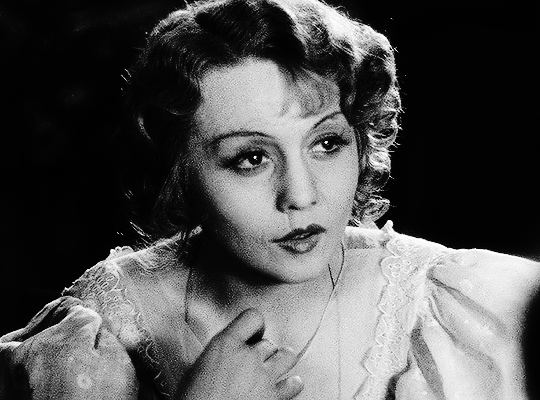
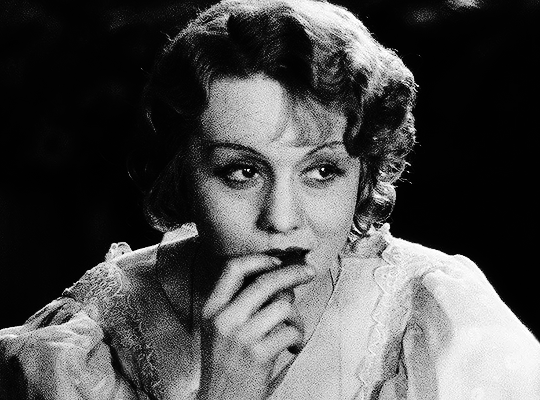


Florelle as Fantine
LES MISÉRABLES (1934)
dir. Raymond Bernard

#les miserables#les miserables 1934#france#1930s#by kraina#filmedit#worldcinemaedit#perioddramaedit#weloveperioddrama#onlyperioddramas#filmgifs#cinemaspast#classicfilmsource#userraffa#userteri#userrobin#underbetelgeuse#userdanahscott#tuserhan
345 notes
·
View notes
Photo

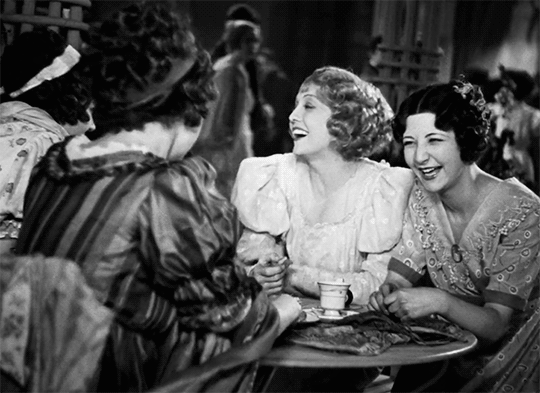
LES MIS LETTERS IN ADAPTATION - A Double Quartette, LM 1.3.2 (Les Miserables 1934)
Favourite, Dahlia, Zéphine, and Fantine were four ravishing young women, perfumed and radiant, still a little like working-women, and not yet entirely divorced from their needles; somewhat disturbed by intrigues, but still retaining on their faces something of the serenity of toil, and in their souls that flower of honesty which survives the first fall in woman. One of the four was called the young, because she was the youngest of them, and one was called the old; the old one was twenty-three. Not to conceal anything, the three first were more experienced, more heedless, and more emancipated into the tumult of life than Fantine the Blonde, who was still in her first illusions.
#Les Mis Letters#Les Mis#Les Mis Letters in Adaptation#LM 1.3.2#Fantine#Favourite#Dahlia#Zéphine#Les Miserables#Les Mis 1934#Les Miserables 1934#lesmisedit#lesmiserablesedit#lesmiserables1934edit#Florelle#filmedit#pureanonedits#movieedit#There's so little of this section of the book in adaptation! We need more Fantine focus in adaptation (2019 don't interact)
153 notes
·
View notes
Text
William Edward Chiaiese was born on October 20, 1934 to John and Emily Chiaiese(key-ah-tze) in Dorchester , Massachusetts . The family later moved to Squantum , Mass. John changed the family name to Chase, understanding that the Italian name Chiaiese was both hard to spell and pronounce.
While Bill was growing up his parents felt that he needed to broaden his horizons and arranged for him to take violin lessons. Bill did not even touch the trumpet, until the middle of his high school years. A newspaper clipping dated 1956 pictures Bill listed as a Corporal in the 26th Yankee Infantry Division Band holding a bass drum. Bill's experience as a drummer changed his life and the lives of many others. During a St. Patrick's Day parade he had to lug his huge drum for five miles enduring the miserably cold pouring rain. It hurt so bad that he decided never to do it again, he asked his father to dig out his old trumpet for him.
Not long after switching to trumpet, Bill was playing first chair in the school orchestra and classical music was his main love. Early 1950's a neighbor coaxed Bill to attend a Stan Kenton concert with him. This was the band with Maynard Ferguson, Buddy Childers, Conte Condoli, etc. After that night, Bill was hooked on jazz and high note trumpet.
As you can tell, this time period in Bills life is hard to decipher. Bill was doing so much playing, and he became very good so quickly, that the dates are very confusing. Since Maynard left the Kenton Band and headed to Hollywood in 1953, Bill must have seen Kenton before then. I can only assume that he switched to the trumpet around 1951 at about the age of 16.
Boston Globe writer Ernie Santosuosso wrote about Bill in 1971, “Bill Chase has been experimenting with sounds all of his life. As a youngster in the Fields Corner community of Dorchester , he was intrigued by the drums. Since he didn’t own a set, he’d improvise with the aid of a couple of galvanized steel rubbish barrels.
Bill’s backyard became his bandstand as he beat out precocious rhythms atop the inverted barrels. The little Italian lady, who sat at her kitchen window, regarded Bill as a pet but voiced emphatic objections to his make-shift paraddidling on the barrels. So, when Bill’s father, who played trumpet, decided to retire his horn, the boy’s curiosity inevitably led him to the instrument and away from the barrel- house. The maturation process as a trumpeter had begun for Bill.
The ex-drummer put his horn to work for St. Ambrose’s Band, then for Boston English High, Berklee, Stan Kenton, Maynard Ferguson, and Woody Herman. The little old Italian lady was given special command performances in her kitchen and she almost lit a candle in thanksgiving for young Bill’s return to his barrels and rubbish deposits.”
He started playing his fathers old trumpet the summer before his junior year in high school and showed a natural aptitude for it. He soon joined a Drum and Bugle Corps, along with his school groups. This, was prior to his stint in the Boston National Guard where he said he wrote music and played trumpet in 1957. He served for six months in the guard band, which honed his talents as a trumpeter and arranger.
Chase played lead trumpet with Maynard Ferguson in 1958, Stan Kenton in 1959, and Woody Herman's Thundering Herd during the 1960s.
One of Chase's charts from this period, "Camel Walk", was published in the 1963 Downbeat magazine yearbook. From 1966 to 1970 he freelanced in Las Vegas, working with Vic Damone and Tommy Vig. In 1967 he led a six-piece band at the Dunes and Riviera Hotel where he was featured in the Frederick Apcar lounge production of Vive Les Girls, for which Chase arranged the music.
In 1971 he started a jazz rock band named "Chase" that mixed pop, rock, blues, and four trumpets.[5] The debut album Chase was released in April 1971. Chase was joined by Ted Piercefield, Alan Ware, and Jerry Van Blair, three jazz trumpeters who were adept at vocals and arranging. They were backed up by a rhythm section consisting of Phil Porter on keyboards, Angel South on guitar, Dennis Johnson on bass, and John "Jay Burrid" Mitthaur on percussion. Rounding out the group was Terry Richards, who was the lead vocalist on the first album. The album contains Chase's most popular song, "Get It On", released as a single that spent 13 weeks on the charts beginning in May 1971. The song features what Jim Szantor of Downbeat magazine called "the hallmark of the Chase brass—complex cascading lines; a literal waterfall of trumpet timbre and technique." The band received a Best New Artist Grammy nomination, but was edged out by rising star Carly Simon.
Chase released their second album, Ennea, in March 1972; the album's title is the Greek word for nine, a reference to the nine band members. The original lineup changed midway through the recording sessions, with Gary Smith taking over on drums and G. G. Shinn replacing Terry Richards on lead vocals. The third album, Pure Music, moved the band toward jazz. Two of the songs were written or co-written by Jim Peterik of the Ides of March, who also sings on the album, along with singer and bassist Dartanyan Brown.
Chase's work on a fourth studio album in mid-1974 came to an end on August 9, 1974. While en route to a scheduled performance at the Jackson County Fair, Chase died in the crash of a chartered twin-engine Piper Twin Comanche in Jackson, Minnesota, at the age of 39. The pilot and co-pilot were killed, as were keyboardist Wally Yohn, guitarist John Emma, and drummer Walter Clark.
Source: Kevin Seeley/Wikipedia

2 notes
·
View notes
Text



Frank Lloyd, the Scottish film director, actor, scriptwriter, and producer passed away on August 10th 1960 aged 74.
He maybe and obscure relatively unknown nowadays, but Lloyd has the distinction of being the first Scot to win an Oscar
Lloyd was born in Glasgow on Feb. 2, 1887, and went to Canada at the age of 23 to work as a construction engineer.
He came to Hollywood in 1913 and made his start directing one and two-reel silent movies. He made 50 such pictures in the first year.
He won Oscars for his direction of "Divine Lady" in 1929 and "Cavalcade" in 1933. He was nominated in 1935 for his direction of "Mutiny on the Bounty," and although he lost the award to John Ford, the film received the Academy Award for best picture.
Other films of Lloyd's direction included "Les Miserables" (1917), "A Tale of Two Cities" (1917), "Riders of the Purple Sage" (1918), "The Eternal Flame" (1922), "Oliver Twist" (1922), "Ashes of Vengeance" (1923), "Within the Law" (1923), "The Divine Lady" (1929) and "Drag" (1929). He was also credited as a screenwriter on "Les Miserables," "Riders of the Purple Sage," "Oliver Twist," "Ashes of Vengeance" and a number of other pictures.
Beyond his directing career, he also worked as a producer and acted in a number of his own early films. He also served as the president of the Academy of Motion Picture Arts and Sciences from 1934 to 1935.
During World War II, he entered the Army Air Corps as a major and won the Legion of Merit and the Air Medal. He was commanding officer of the 13th Air Force Combat Camera Unit and directed a Pacific airpower documentary.
Lloyd retired from filmmaking in 1945 to live on his ranch at Carmel Valley, but later returned to Hollywood to work on "Shanghai Story" and "Last Command."
He died in 1960 at St. John's Hospital in Santa Monica, Calif., following several months of heart and lung trouble, at the age of 73.
6 notes
·
View notes
Text


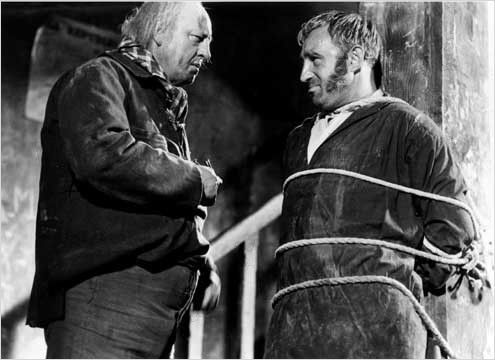
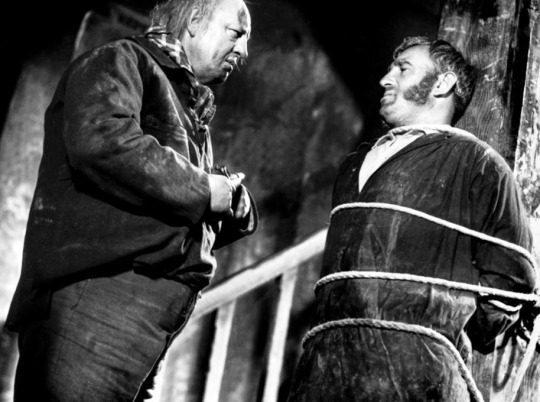

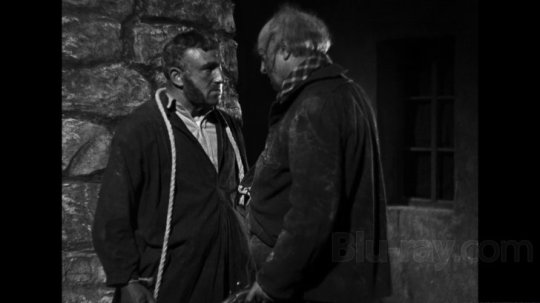




1934 Javert appreciation day!💖🎉🎊🎩
#les miserables#les mis#les misérables#javert#javert les miserables#inspector javert#les miserables 1934#les mis 1934#1934#charles vanel
26 notes
·
View notes
Text

Paul Azaïs as Grantaire in Les Misérables (1934), directed by Raymond Bernard [source]
199 notes
·
View notes